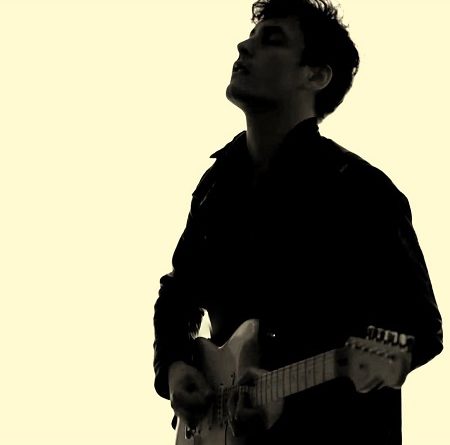IT’s Time To Know More About Enrico Orlandi
Enrico Orlandi was born in Rome on May 23rd 1991. He grew up listening to and playing pop and rock music, discovering his love for classical music during college. After numerous musical experiences, including a European tour and the recording of multiple albums, Enrico decided to move to Boston to attend the prestigious Berklee College of Music in 2014, in order to pursue his dream of becoming a film composer. He founded the independent studio and record label Lepredizioni Musicali in 2016. Once graduated Summa cum Laude in Film Scoring with a minor in Video Game Scoring, Enrico started working on multiple short movies, documentaries and video games as a composer, while also recording and producing music for himself and other clients. He loves to find new ideas through interactions with other people. He firmly believes that empathy is the most fertile source of inspiration. His two biggest passions in life are storytelling and thematic composition.
Q: When did you decide to be a film composer and why?
Ans: I discovered my passion for scoring films pretty late, to be honest. I played in a few band growing up, and music has been part of my life since I was just a kid, but I realized I wanted to be a film composer right before college.
It was a natural decision because watching and analyzing movies and composing music have always been things I was passionate about, from a very early age.
Film Scoring is a way to put the two things together, making both films and music at the same time.
Q: You have worked on a number of short films, which one was your favorite project?
Ans: I can’t say I have a favorite project, each and every one of them was a chance to grow up and learn. Film Scoring is about making movies with other people, trying to make the director’s vision and your own merge together.
That said, if I had to choose one it would probably be the short film “Then & Now” by Giulia Tata and Antonino Torrisi, which also won the Zavattini award in Italy.
Q: What was special about “Then & Now”? What was the process behind the creation of its score?
Ans: The movie is a dystopian science-fiction that takes place in the past. The directors and I were looking for a particular sound for it, we wanted it to sound retro, mysterious and interesting, with a dark twist to it. I had to do extensive research to
make it sound as if it was composed 60 years ago. I listened to a lot of sci-fi movie soundtracks from the 50s and 60s for inspiration and I created a theme that conveyed the mysterious vibe the movie needed. It was great to interact with the directors Giulia and Antonino to exchange ideas.
Q: For our readers who have never heard your music, can you describe your sound in 5 words?
Ans: It really depends on the kind of project I’m working on. One of the skills I’m required to have as a film scorer is to be versatile —to be able to write virtually any kind of music and adapt it to images. I of course have my favorite kinds of music. Or rather, I just feel more used to specific genres. But I always like getting out of my comfort zone and experiment. If I had to describe my sound I’d probably say it’s thematic and versatile. I try to write and produce whatever the movie needs.
Q: What was the biggest challenge for you composing a score?
Ans: I recently worked on a short film called “Una Cosa Nostra”, an Italian project that denounces the struggles of kids living in suburban areas in southern Italy directed by Greta Scicchitano and Naima Vitale. The kind of music that the directors wanted was electronic, and it was the first time for me producing electronic music for a movie. It was a completely different approach, as I usually write orchestral music or a blend of orchestral and electronic. It was a challenging experience but we were all very happy with the result, the movie is being received very well.
Q: Do you write all of your own music? Where do you draw inspiration from when you write songs and what’s your favorite part about the process?
Ans: I do write all of my music, even though I collaborate with other composers every once in a while. I actually like the composition process better when other people are involved. My first experience cooperating with other composers was on the documentary “Sacachùn”, directed by Gabriel Páez. We had a team of four composers and we all created different musical themes and then incorporated them in the movie. It was great to share and shape each other’s compositions. I feel that many of us approach composition in a very solitary way in the beginning, but I find it way more inspiring to interact with other human beings, receiving their input, their feedback and do the same with them.
Q: When and why did you start playing?
Ans: I started playing guitar when I was 12. I was born with an Erb’s palsy, which is a partial paralysis of my right arm. When my doctor told me I wasn’t gonna be able to play guitar I was stubborn enough to try it anyway. I eventually ended up making it my life.
Q: Was it hard to learn given your condition?
Ans: It was extremely hard at first, it got easier with time. I was lucky enough to be surrounded by encouraging and supporting friends and family. I will always be grateful to them for pushing me and helping me during the darkest times.
Q: In addition to being a film composer do you have other musical projects you wanna share with our readers?
Ans: I’ve been working on a solo album for almost five years. It’s a project I really care about and I can’t wait to share it with anybody willing to give it a listen. It’s a concept album called “A Handful Of Reasons To Go Back In Time” which talks about growing up, letting things and people go and eventually learning to move forward. I know, it’s kind of a long title.
Q: What advice would you give to beginners that want to learn how to score films but are not quite sure if that’s the right path for them?
Ans: Just ask yourself what your passions are. I know, it sounds like a banal platitude, but being honest with yourself about this is one of the hardest challenges in life, in my opinion. If the answer includes movies and music, being creative and interacting with other creatives then there’s a chance you’re one of us. This job takes patience, Just make sure you know what you’re getting yourself into. It’s not about your music, it’s about stories! It’s about the stories that the directors you work with are trying to tell. A big part of film scoring is letting go of your ego and dedicate yourself to someone else’s story and vision. You will present your own ideas while making compromises, trying to meet in the middle. I think there is so much beauty in this.




